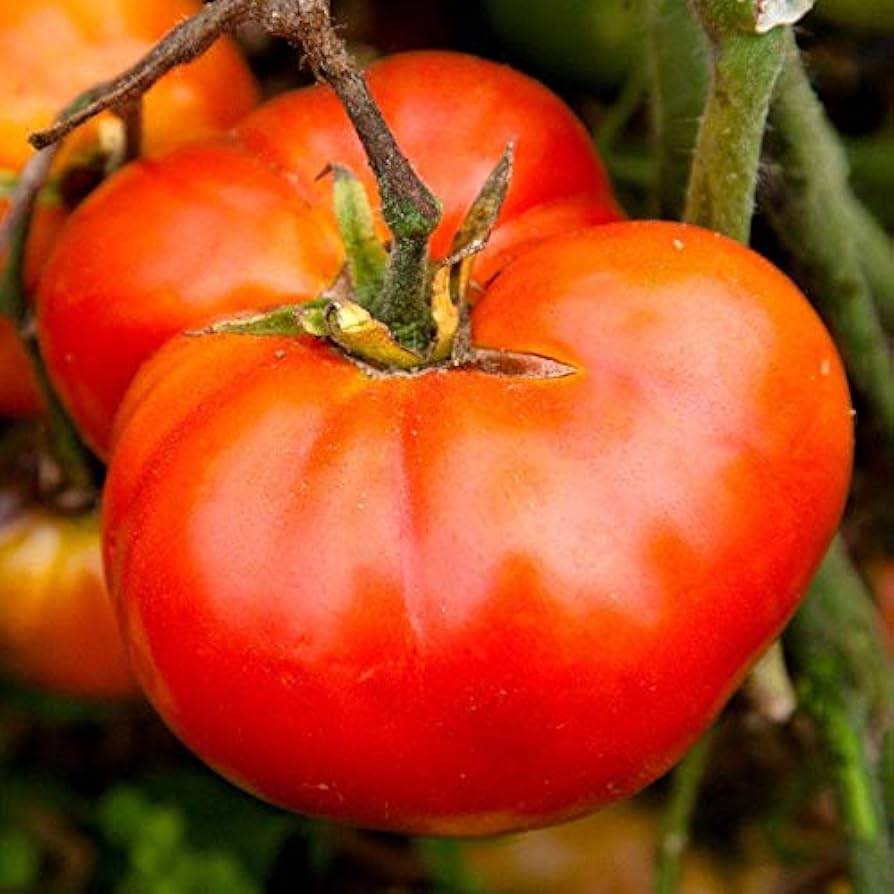Manitoba Tomato Vegetable Seeds (Solanum lycopersicum) Organic & Conventional for Short Season Planting
Couldn't load pickup availability
Description
Manitoba Tomato Seeds (Organic & Conventional)
Characteristics and Uses of Manitoba Tomato Plants
Manitoba Tomato is a versatile variety known for its early maturity and robust flavor. These seeds, available in both organic and conventional options, produce medium-sized, round red fruits that are perfect for fresh eating, sauces, and canning. The plants are particularly valued for their ability to thrive in cooler climates, making them an excellent choice for gardeners looking to enjoy fresh tomatoes earlier in the season. With their strong growth and high yield, Manitoba tomatoes are ideal for home gardens and small-scale farming, ensuring a delightful harvest throughout the growing season.
Growing Conditions for Manitoba Tomato Plants
- Light Requirements: Prefers full sun, requiring at least 6-8 hours of direct sunlight each day.
- Soil Type: Thrives in well-draining, fertile soil enriched with organic matter for optimal growth.
- Temperature: Best suited for cooler temperatures, ideally between 60°F and 75°F for healthy growth.
Planting Tips for Manitoba Tomato
- Timing: Sow seeds indoors 6-8 weeks before the last frost date or directly outdoors after the last frost for the best results.
- Depth: Plant seeds about 1/inch deep in the soil, ensuring they are lightly covered.
- Spacing: Space plants 18-2inches apart to allow for proper air circulation and growth.
Watering Instructions and Tips
- Watering Frequency: Water regularly, providing about 1-2 inches of water per week, especially during dry spells.
- Mulching: Apply a layer of mulch around the base to help retain moisture and suppress weeds.
- Signs of Underwatering: Look for wilting leaves or dry soil as indicators that your plants need more water.
Growing Zones
Manitoba Tomato plants are well-suited for USDA zones 3-and can adapt to various global climates, making them a versatile choice for gardeners looking to cultivate this flavorful tomato variety.
Key Benefits & Uses
- Nutritional Value: Rich in vitamins A and C, as well as antioxidants, making them a healthy addition to your diet.
- Flavorful: Known for their sweet and tangy flavor, perfect for fresh eating and culinary uses.
- Early Maturity: Produces fruit earlier in the season, allowing for a quicker harvest compared to other varieties.
Best Uses in the Garden & Landscape
- Vegetable Gardens: Ideal for planting in vegetable gardens, providing a nutritious and flavorful crop.
- Container Gardening: Perfect for growing in pots or containers, adding beauty and flavor to patios and balconies.
- Edible Landscapes: Great for incorporating into edible landscapes, combining beauty and functionality.
Conclusion
Manitoba Tomato seeds from bijaseeds are an excellent choice for gardeners looking to cultivate a delicious and nutritious tomato variety. With their distinctive characteristics and numerous benefits, these organic and conventional seeds are perfect for enhancing any garden space. bijaseeds is a big, trusted name in the seed world, offering a wide range of high-quality, non-GMO varieties to gardeners everywhere.
FAQ
How do I grow Manitoba Tomatoes from seeds?
To grow Manitoba Tomatoes from seeds, start by planting them in well-draining soil in a sunny location. Water regularly, allowing the soil to dry slightly between waterings for optimal growth.
When is the best time to plant Manitoba Tomato seeds?
The best time to plant Manitoba Tomato seeds is indoors 6-8 weeks before the last frost date or directly outdoors after the last frost. Ensure the soil temperature is warm enough for germination.
Are Manitoba Tomato plants difficult to grow?
Manitoba Tomato plants are relatively easy to grow, making them suitable for gardeners of all skill levels. With proper care, including adequate sunlight, watering, and spacing, they can thrive and produce a bountiful harvest.



